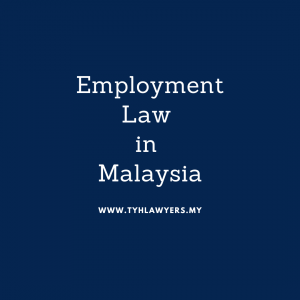The Court Recognised The Covid-19 Pandemic As A Factor In Malaysia
The Court Recognised The Covid-19 Pandemic As A Factor In Malaysia
In the recent Industrial Court Award in Kesatuan Sekerja Industri Elektronik Wilayah Utara Semenanjung Malaysia v Panasonic Automotive Systems Malaysia Sdn Bhd [Award No: 1711 of 2020], in deciding between the interest of the employers and the employees, the Industrial Court had taken into consideration the economic climate caused by the Covid-19 pandemic as well as the financial implications to the companies in Malaysia.
It was a trade dispute between the Northern Electronic Workers Union (“Union”) and Panasonic Automotive Systems Malaysia Sdn Bhd (“the Company”) for the Union’s claim for across the board 10% salary increases, bonuses and other benefits.
The Union’s position was that the Union’s members were entitled to equitable rates of pay and other terms and conditions of service and that the Company was under a moral obligation to provide such equitable rates of pay and other terms and conditions of service. One of the factors used by the Union is that the workers and their families are dependent on wages as well as the rise in the costs of living with had increased substantially.
The Company took a position that the Articles proposed by the Union are frivolous, excessive and unreasonable. The Company said the it does not have the ability and capacity to pay higher wages wherein the business environment is becoming increasingly challenging and this is further exacerbated by the global outbreak of the Covid-19 coronavirus pandemic and the enforcement of the Movement Control Order, which had contributed to the drastic decline in business.
In the case, the Industrial Court had given the decision and the key highlights of the decision are as follows:-
The Court had rejected the Union’s request for a 10% increase in the wages across the board and it was rejected by the Court as the Court held that it is common knowledge that business had been generally affected by the Covid-19 Pandemic;
The Union had requested for a 10% increase of their basic salaries each year for all eligible employees and the Company argued that the 10% proposal is excessive and proposed for a 5% increment. The Court allowed the annual salary to increment of 5%;
The Court had rejected the Union’s request for one-month contractual bonus and held that it is the employer’s prerogative and relates to the company’s profitability and productivity;
The Union sought that the Company to contribute retirement benefits to the employees. The Court did not grant it as it was of the view that the issues of retirement benefits are best left to the discretion of the employer;
The Union sought for 90 days paid maternity leave, but it was not allowed by the Court;
In relation to the retrenchment benefits, the Industrial Court held that the Company must inform the employee who will be retrenched, 1 month before retrenchment takes place and must comply with “last in first out” when retrenching;
The decision given by the Industrial Court in the case is considered an employer friendly decision. In the concluding ruling, the Court stated that the decision was based on the interest of the members of the Union as well as the financial implications to the Company especially in the fragile economic climate caused primarily by the Covid-19 pandemic.
It shows that the Industrial Court’s willingness to take into consideration the economic situation in striking a balance between the weighing the interests of the Company and the Union.
Although Covid-19 is now one of the factors to be considered by the Court, employers must be mindful that the burden is still upon them to establish the financial position of the Company through sufficient documentary evidence. A mere reliance on the pandemic or economic downturn would be insufficient.
Get Free Initial Consultation & Quotation From Our Employment Lawyers For Your Business Or Company Now

